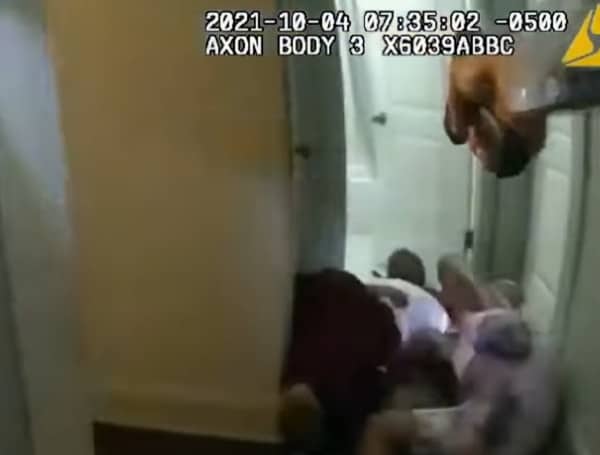Years before George Floyd, there was Michael Brown - the black Ferguson, Missouri, man killed by a white police officer during a scuffle, during whic
Years before George Floyd, there was Michael Brown – the black Ferguson, Missouri, man killed by a white police officer during a scuffle, during which Brown tried to grab the officer’s gun.
Protests and riots ensued after Brown’s death, and resentment grew, continuing even after local and federal authorities found no wrongdoing by the officer. Accordingly, police pulled back from enforcing the law, and violence increased. Conservative scholar Heather Mac Donald dubbed this the “Ferguson Effect.”
Liberals have tried to downplay this easily observable phenomenon, and then, after Floyd died in police custody in 2020, seemed to throw gas on this particular fire by dismissing rioting as “mostly peaceful” protests and promoting them as legitimate forms of social dissent. They also advocated even more leniency by cops and prosecutors and were frequently rewarded in Democratic-monopolized cities and states.
Now, some new studies support the notion of the Ferguson Effect.
Columnist Charles Fain Lehman of the Manhattan Institute, writing in City Journal, noted recently that the studies “provide strong evidence that highly scrutinized officer-involved fatalities reduce discretionary police activity and lead to an increase in violent crime.”
Lehman noted that the more recent study, published in the Journal of Public Economics by economists at the University of Mississippi and Tulane University, reviewed crime data in St. Louis and 60 other major cities.
“Their findings manage somehow to be both unsurprising and shocking,” Lehman noted.
After Brown’s death, “self-initiated” arrests by police in St. Louis plunged 62 percent, mostly among misdemeanor crimes and in crimes involving black suspects. “This reduction in police activity persisted for at least the next two years. In the same period, the city experienced a significant rise in homicide and aggravated assault,” Lehman wrote.
The analysis of the other cities showed a similar pattern, he added. The researchers “identify the same phenomenon as in St. Louis: the blackest cities saw larger declines in arrests relative to those with smaller black populations, driven by a decline in misdemeanor arrests, and a simultaneous large (10 percent) increase in homicide.”
The second study highlighted by Lehman was conducted by the Public Policy Institute of California. It compared arrest patterns at police departments in 52 cities that experienced “high-profile shooting incidents” to nearly 2,700 police departments that did not have such an event.
Yet the conclusion is similar.
“Cities that experienced high-profile incidents, relative to those that did not, saw a 10 percent to 17 percent increase in murders and robberies, as well as small increases in theft and grand theft auto,” Lehman pointed out.
“Both studies not only identify a decline in police activity and an increase in homicide after a high-profile incident but also argue that the nature of the decline in activity supports a ‘public scrutiny’ mechanism for the effect,” Lehman wrote.
In other words, cops become less aggressive in the face of criminal activity, even for minor crimes, which has an unexplained effect of driving up more violent crimes, because they fear the public blowback from liberals if something goes wrong.
“These two studies provide good evidence that high-profile policing incidents and the ensuing scrutiny drive discretionary police activity down and violent crime, especially homicide, up,” Lehman noted.
They also provide “support to those who propose a relationship between 2020’s wave of anti-police protests and the ensuing homicide wave still sweeping the country—and to those who believe that continued hostility to the police will lead to more bloodshed.”
Visit Tampafp.com for Politics, Tampa Area Local News, Sports, and National Headlines. Support journalism by clicking here to our GoFundMe or sign up for our free newsletter by clicking here.
Android Users, Click Here To Download The Free Press App And Never Miss A Story. It’s Free And Coming To Apple Users Soon

COMMENTS